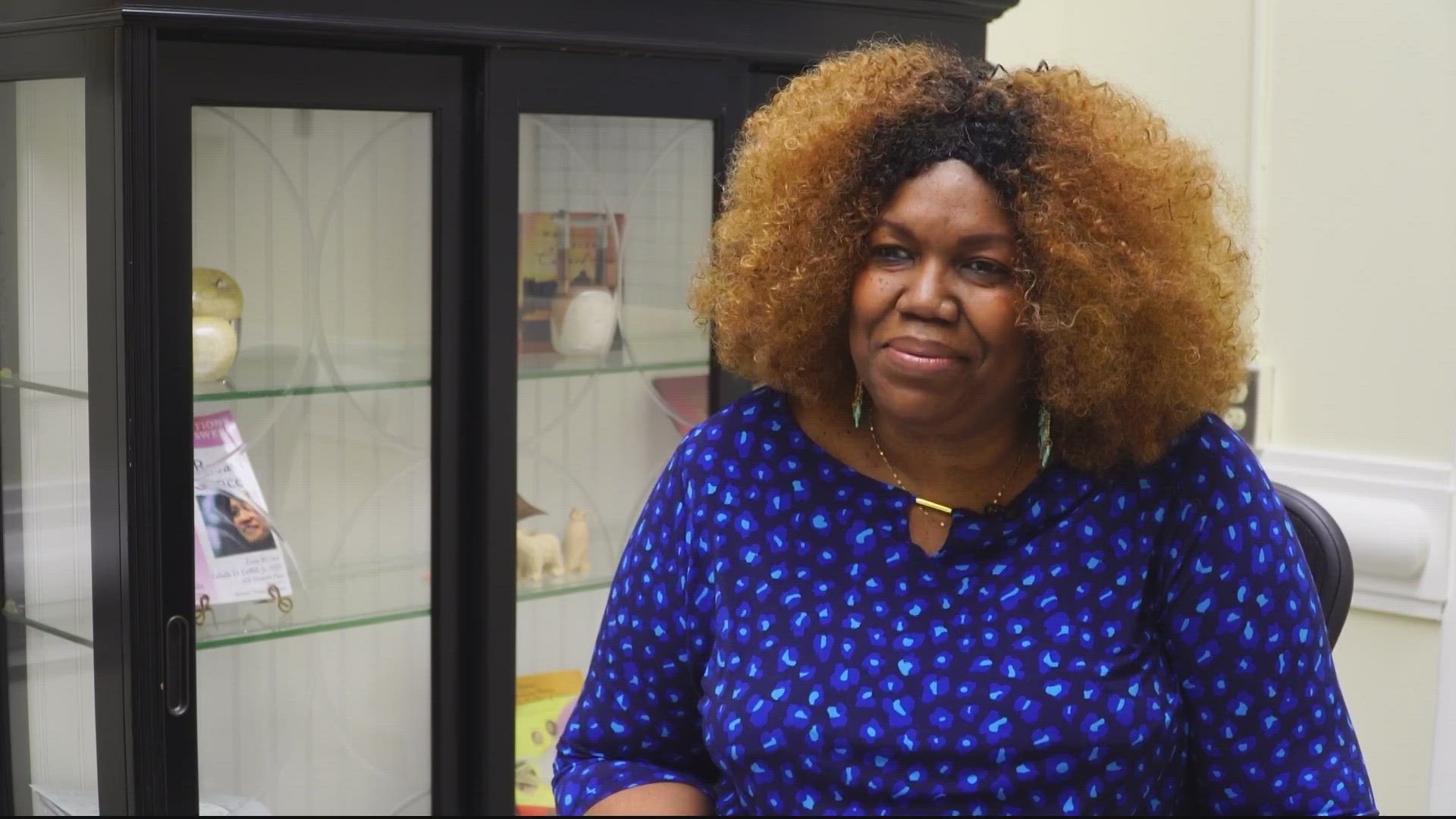WASHINGTON — In the time it takes you to read this next story, at least one woman will be diagnosed with breast cancer. Here in our nation's capital, breast cancer is the most commonly diagnosed cancer among women.
For those women and others impacted, a patient navigator can be a lifeline.
At the Howard University Cancer Center, it begins with a greeting of hope and a hug.
“Hi, how are you? I’m good, good to see you.”
This is how patients at the Howard University Cancer Center begin to find their footing on a journey to survive.
“Just want to talk about the next steps. You already have your appointment set up with your medical oncologist,” said Kimberly Higginbotham, Patient Navigator Coordinator for HUCC.
Higginbotham is talking with Angela Phillips. Phillips has endured three bouts of breast cancer.
The last two came as a one-two punch, in 2019, just before COVID hit and then again, in 2022.
“I was literally shocked, I was taken aback. I didn’t expect it,” said Phillips.
For round three, she didn’t have to go into this health battle feeling alone.
Kim, her patient navigator, has been by her side helping to manage her care.
Angela says it’s made all the difference.
“I need an appointment? She’s making that appointment. I need to get transportation set up, she enrolled me in Metro Access, so I could get to my appointments. She is what you call a LIFE SAVER,” said Phillips.
Kim knows all about the uncertainly, the fear and the questions that come from the word “cancer.” As a two time breast cancer survivor, she’s been here and lived through that. Kim’s treatment at the HUCC inspired her to give back to others.
She knows that health outcomes are often tied to what is happening in your life, outside of a cancer diagnosis.
“They may not be working, so we’ll let them know there are some programs that offer financial assistance, or that we have programs like a food pantry that we have here,” said Higginbotham. “So just to let them know the different resources that are available to try to help them come to their appointments. And, to let them know that we’re in your corner. “
Patient navigators try to remove any barriers to care by working with physicians to ensure no one falls through the cracks. Before this model became the standard, physicians would often have to work to manage these details themselves. It was challenging.
“If a patient doesn’t have transportation, they can’t get to appointments and they can’t get to their treatment. If they don’t have resources for food, or food insecurity, or need assistance with paying utilities or taking care of children - all these thing really impact the outcome of a patient,” said Dr. Jacquelyn Dunmore-Griffith, Radiology Oncologist at HUCC.
Those critical resources made it possible for Angela to reach a milestone on her own journey.
Just two weeks ago, she rang the bell of freedom from treatments for cancer.
“It’s wonderful, I could look beyond now. I’m actually looking to the future.”
A future, made brighter in part, because of a special guiding hand and heart.
HUCC needs more hands and hearts like Kim to help navigate other patients dealing with all cancers.
Right now, Kim handles all the patients and their needs, regardless of their cancer.
The center hopes that by increasing their support to cancer patients, they’ll be able to help make this process more seamless for anyone in need of service.
The Howard University Cancer Center is the only full service cancer center based within an Historically Black College or University.
To learn more about HUCC, you can visit their website at www.huconquerscancer.org.
WATCH NEXT:

